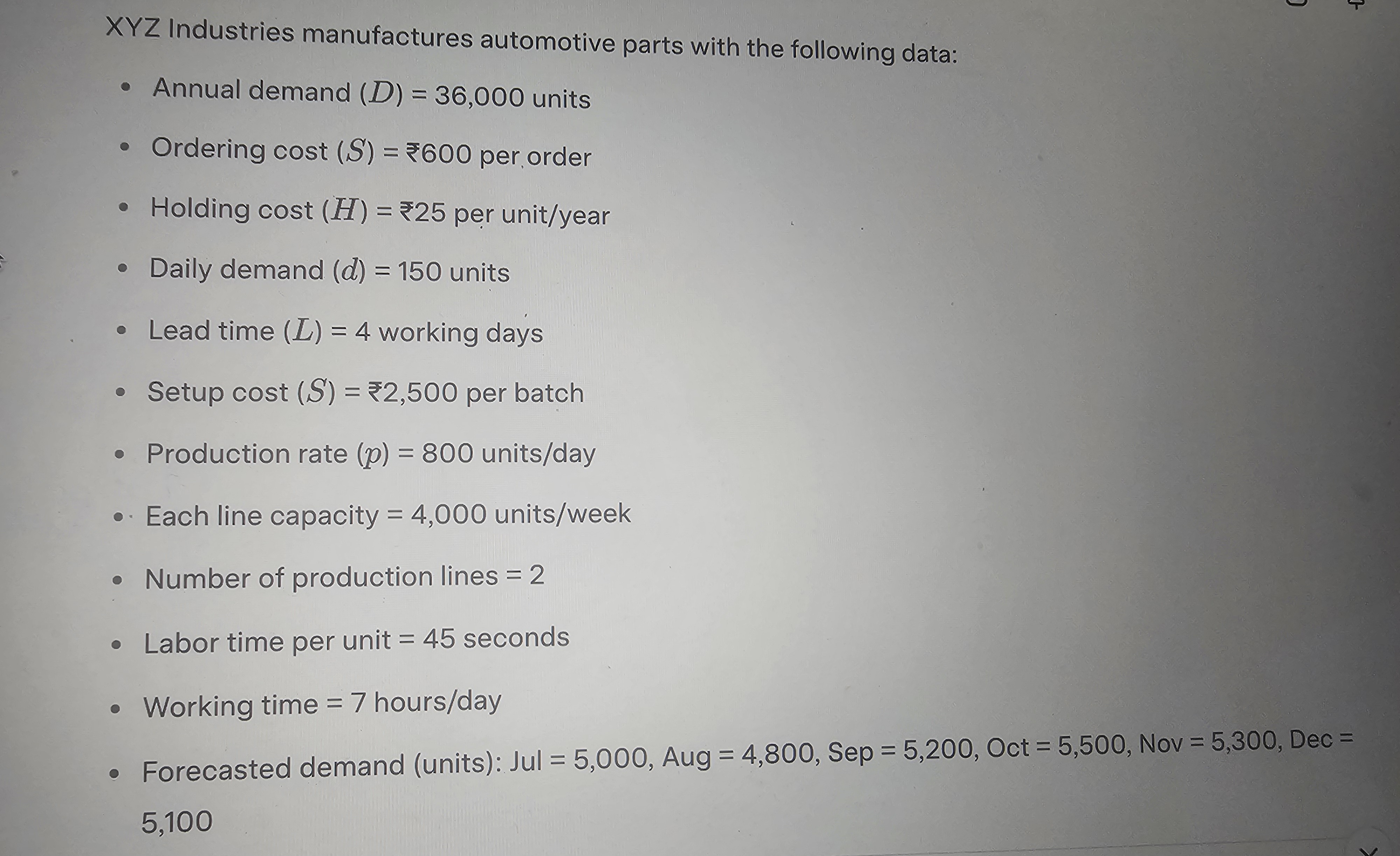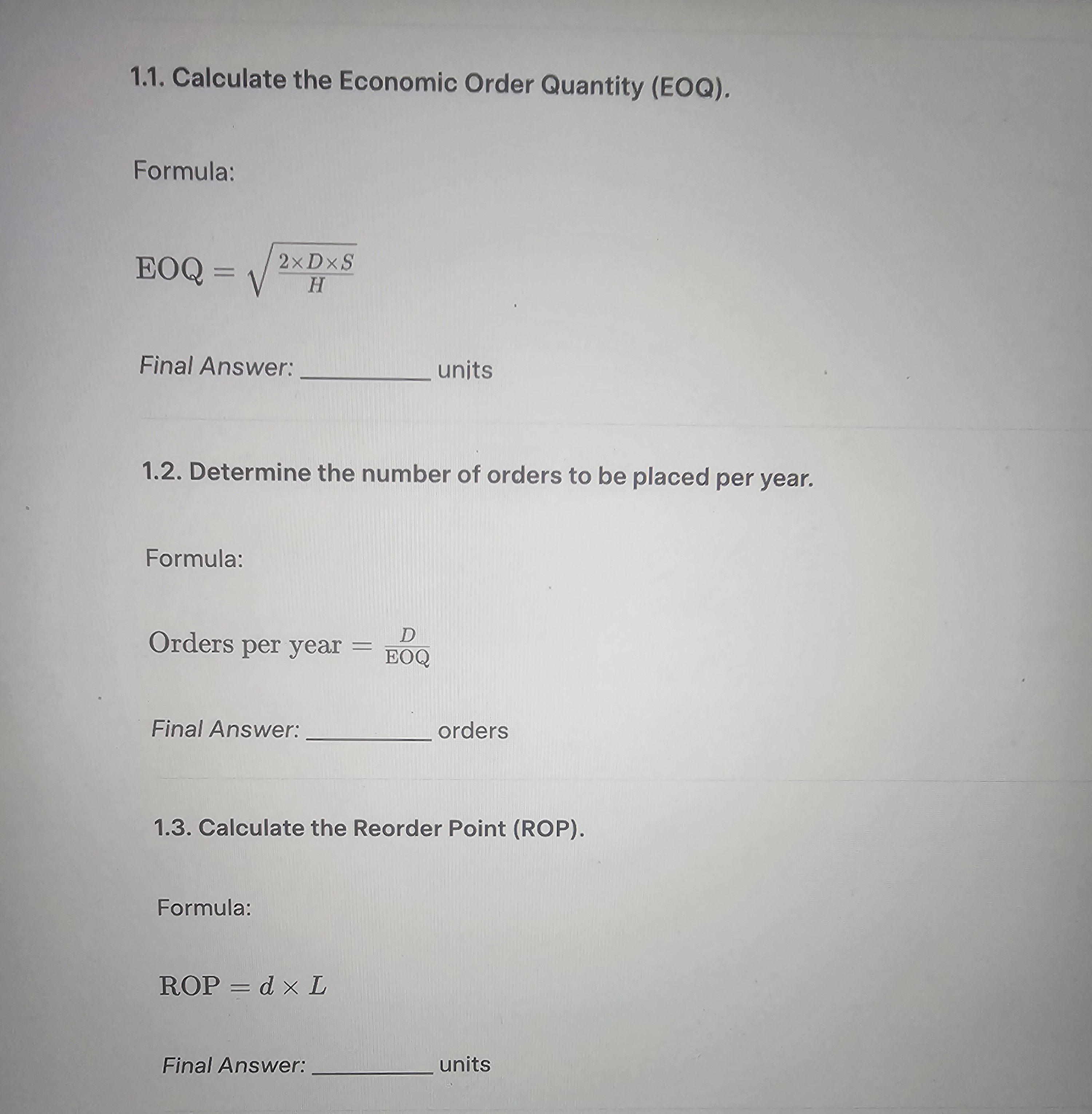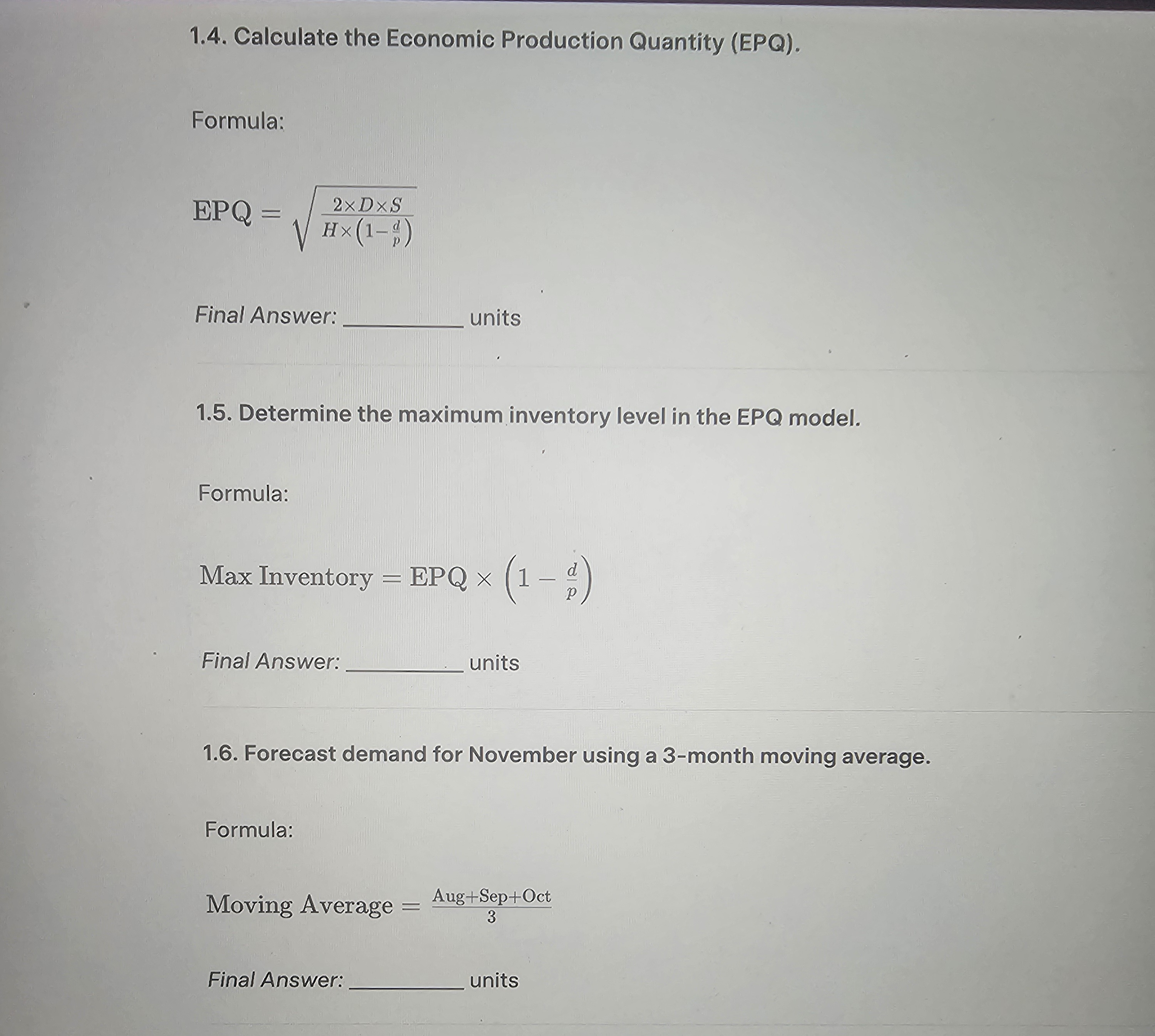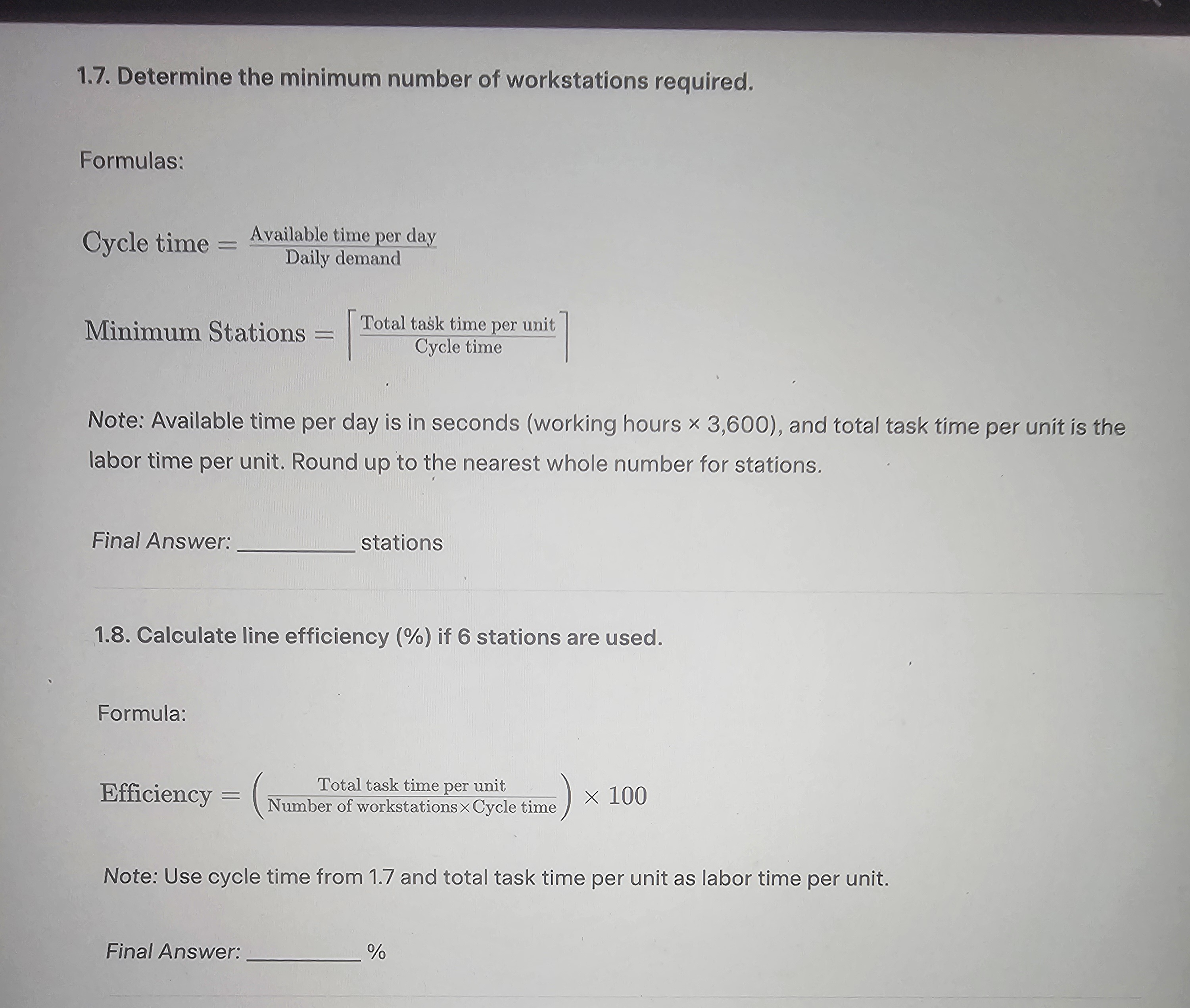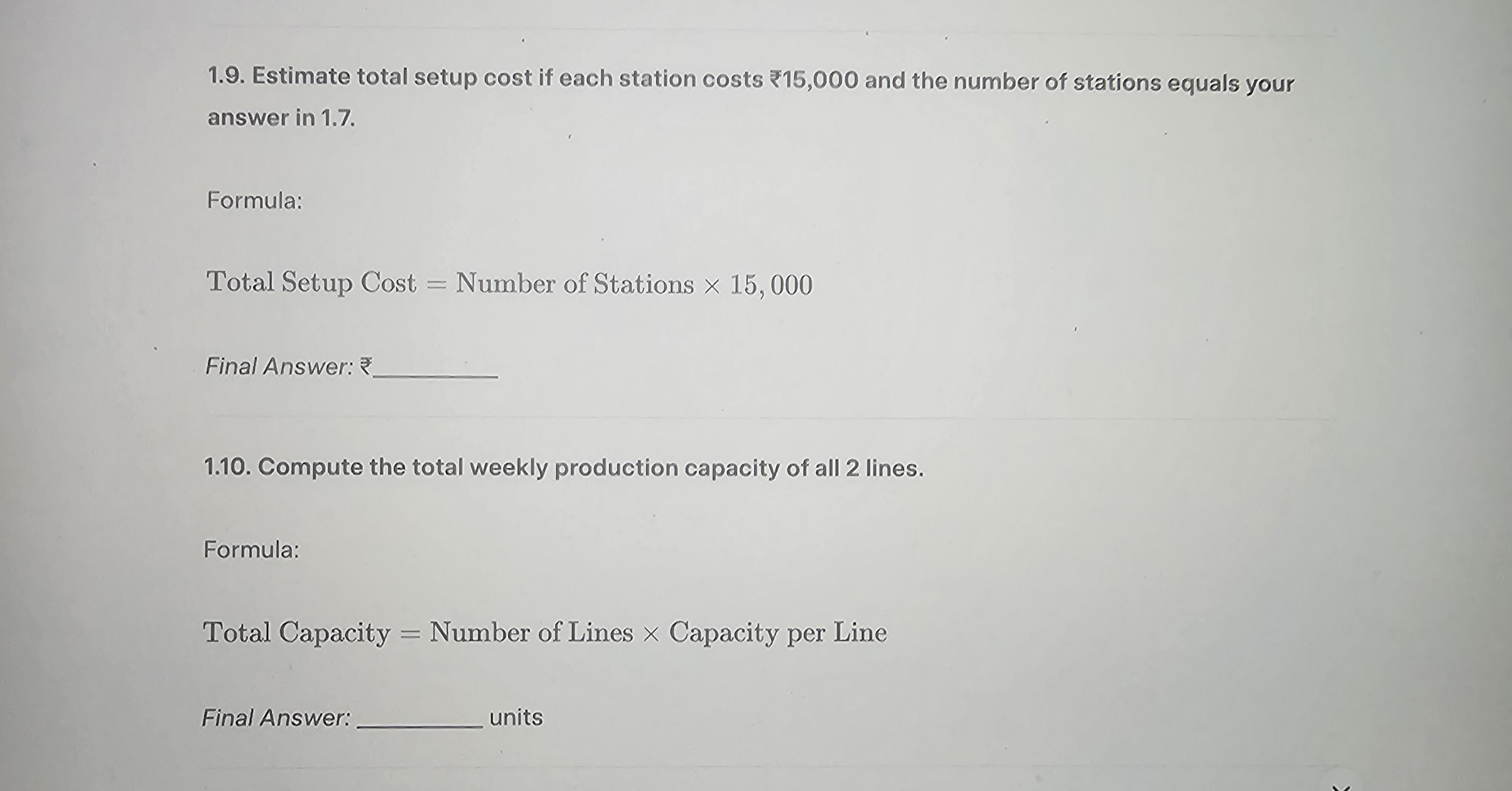Home /
Expert Answers /
Operations Management /
xyz-industries-manufactures-automotive-parts-with-the-following-data-annual-demand-d-36-000-units-pa809
(Solved): XYZ Industries manufactures automotive parts with the following data: Annual demand (D)=36,000 units ...
XYZ Industries manufactures automotive parts with the following data:
Annual demand (D)=36,000 units
5Ordering cost (S)=₹600 per order
Holding cost (H)=₹25 per uni(t)/(y)ear
Daily demand (d)=150 units
Lead time (L)=4 working days
Setup cost (S)=₹2,500 per batch
Production rate (p)=800 unit(s)/(d)ay
Each line capacity =4,000 unit(s)/(w)eek
Number of production lines =2
Labor time per unit =45 seconds
Working time =7 hour(s)/(d)ay
Forecasted demand (units): Jul=5,000,Aug=4,800,Sep=5,200,Oct=5,500,Nov=5,300,Dec=
5,100 1.1. Calculate the Economic Order Quantity (EOQ).
Formula:
EOQ=\sqrt((2\times D\times S)/(H))
Final Answer:
units
1.2. Determine the number of orders to be placed per year.
Formula:
Orders per year =(D)/(EOQ)
Final Answer:
orders
1.3. Calculate the Reorder Point (ROP).
Formula:
ROP=d\times L
Final Answer:
units 1.4. Calculate the Economic Production Quantity (EPQ).
Formula:
EPQ=\sqrt((2\times D\times S)/(H\times (1-(d)/(p))))
Final Answer:
units
1.5. Determine the maximum inventory level in the EPQ model.
Formula:
Max Inventory =EPQ\times (1-(d)/(p))
Final Answer:
units
1.6. Forecast demand for November using a 3-month moving average.
Formula:
Moving Average =( Aug + Sep + Oct )/(3)
Final Answer:
units 1.7. Determine the minimum number of workstations required.
Formulas:
Cycle time =( Available time per day )/( Daily demand )
Minimum Stations =|~( Total task time per unit )/( Cycle time )~|\times 3,600 =(( Total task time per unit )/( Number of workstations \times Cycle time ))\times 100
Note: Use cycle time from 1.7 and total task time per unit as labor time per unit.
Final Answer:
%1.9. Estimate total setup cost if each station costs ₹15,000 and the number of stations equals your
answer in 1.7.
Formula:
Total Setup Cost = Number of Stations \times 15,000
Final Answer: ₹
1.10. Compute the total weekly production capacity of all 2 lines.
Formula:
Total Capacity = Number of Lines \times Capacity per Line
Final Answer:
units5